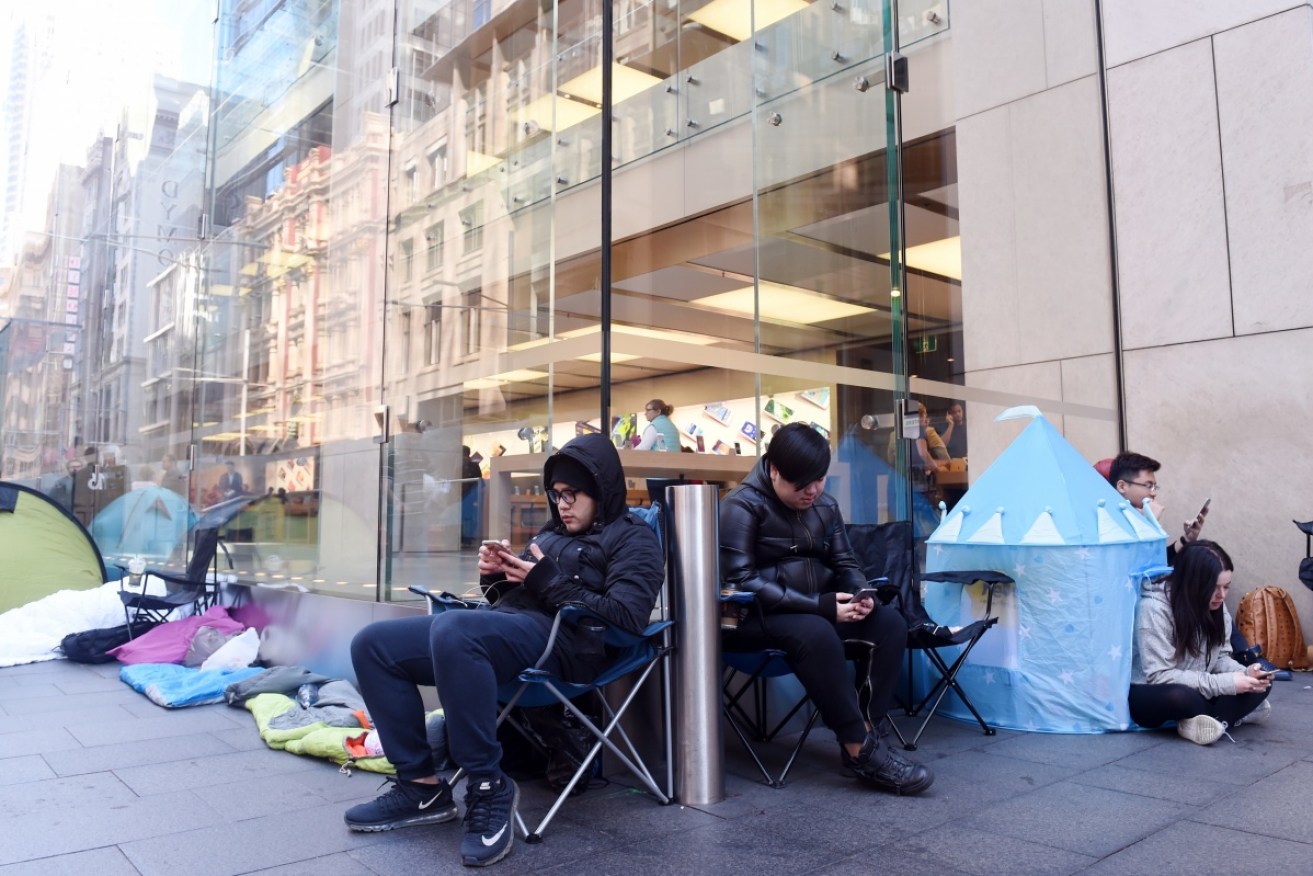How Apple makes us buy iPhones we don’t need

Early adopters queue overnight to be among the first to get an iPhone 7. Photo: AAP
New research has revealed how Apple and other smartphone giants use upgrades to potentially lure consumers into unnecessary purchases.
Marketing academics from the University of Florida and Washington University found that “comparison neglect” was to blame for the upgrading phenomenon.
“Comparison neglect” means consumers are more likely to upgrade even though they don’t need to, and a marketing guru explained to The New Daily how big tech firms can capitalise on this consumer vulnerability.
University of Florida lead researcher Professor Aner Sela told the university’s news service that it meant people were more “susceptible to the biases” the technology industry created surrounding upgrades, according to her findings.
The study results came months after Apple launched its iPhone 7, an upgrade from the iPhone 6s. However the iPhone 7 has been judged a disappointment because it is too similar to its predecessor.
Despite this, the iPhone 7 sold faster than the iPhone 6s on its opening sales weekend, Localytics found.
Researchers think they can explain the clamour to buy upgrades that might not be different, better or needed compared to what we already own.
To do this, Prof Sela first found that 78 per cent of the 1000 smartphone users surveyed admitted that “comparing the upgraded [smartphone] to the status quo [smartphone] option is a necessary component in the decision” to upgrade.
She then observed that 95 per cent of respondents agreed that comparisons were important.
However when respondents were asked to select between a status quo or a smartphone presented as an upgrade – after being provided with a list of specs for both – most opted to upgrade.
“In the moment of truth, we’re susceptible to these biases. That’s the striking thing: Knowing is not enough,” Prof Sela said.
The likelihood of upgrading in respondents decreased when they were specifically reminded to compare.
How Apple capitalises
University of Melbourne marketing guru Dr Brent Coker told The New Daily how big tech companies use the promise of an “upgrade” as a way of compelling consumers to make another purchase.
“Some brands will push out a new model as a full upgrade as a model 5, for example, but it is really a 4.1,” Dr Coker said. “So there seems a significant difference but there isn’t.”
He then explained that from “early adopters” (those who queue overnight for new products) to the “mainstream” (those who can wait a bit longer), there is a deep psychological that drives us to stay relevant.

On the left an iPhone 7. To the right, an iPhone 6. Spot the difference?
“Early adopters are extremely sensitive to loss in terms of something being out there that they don’t have,” Dr Coker said.
“Everyone has the same feeling of loss or not having something, but with early adopters they are particularly sensitive to that effect.”
Dr Coker said the early adopters were seen as “critical” by big tech companies like Apple.
He explained that early adopter’s influence and rush to have the latest product set the tone for the mainstream.
“They are influencers, they take pride in having the latest and greatest.
“They usually have a lot of followers on social media or are heavily networked so these brands want these people to have the latest products.”








